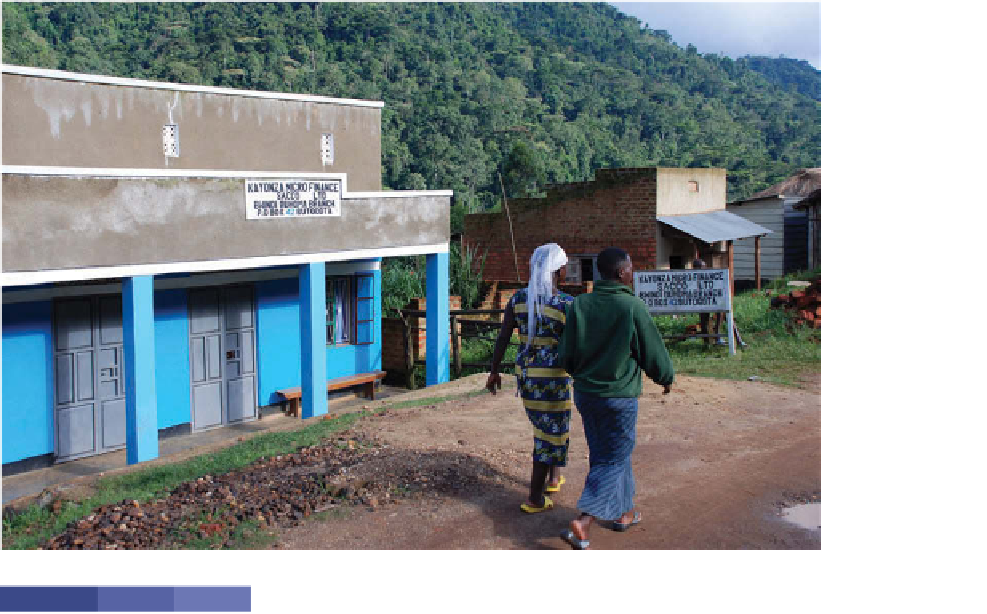Geography Reference
In-Depth Information
Figure 10.17
Bwindi, Uganda.
Women walk by a micro-
credit agency that works to facilitate economic
development in the town.
© Alexander B. Murphy.
Summary
The idea of economic development is relatively new; it implies a sense of progres-
sively improving a country's economic situation. The idea took hold in the wake of
the Industrial Revolution. Geographers focus on the spatial structure of the economy,
assessing how that structure infl uences the ability of states and regions to reach greater
levels of economic development. Geographers also recognize that economic develop-
ment in a single place is based on a multitude of factors, including the situation within
the global economy, the link the place plays in commodity chains, the effi cacy of gov-
ernment, the presence of disease, the health and well-being of the population, the pres-
ence and amount of foreign debt, the success or failure of government policies, and
the infl uence of nongovernmental programs. Geographers also realize that all of these
processes are operating concurrently across scales, making a country's journey toward
economic development much more complicated than climbing a ladder.
Geographic Concepts
commodity chain
developing
gross national product
(GNP)
gross domestic product
(GDP)
gross national income
(GNI)
per capita GNI
formal economy
informal economy
modernization model
context
neo-colonialism
structuralist theory
dependency theory
dollarization
world-systems theory
three-tier structure
Millennium
Development Goals
traffi cking
structural adjustment
loans
neoliberalism
vectored diseases
malaria
export processing zones
maquiladoras
special economic zones
North American Free
Trade Agreement
(NAFTA)
desertifi cation
island of development
nongovernmental
organizations (NGOs)
microcredit program












































